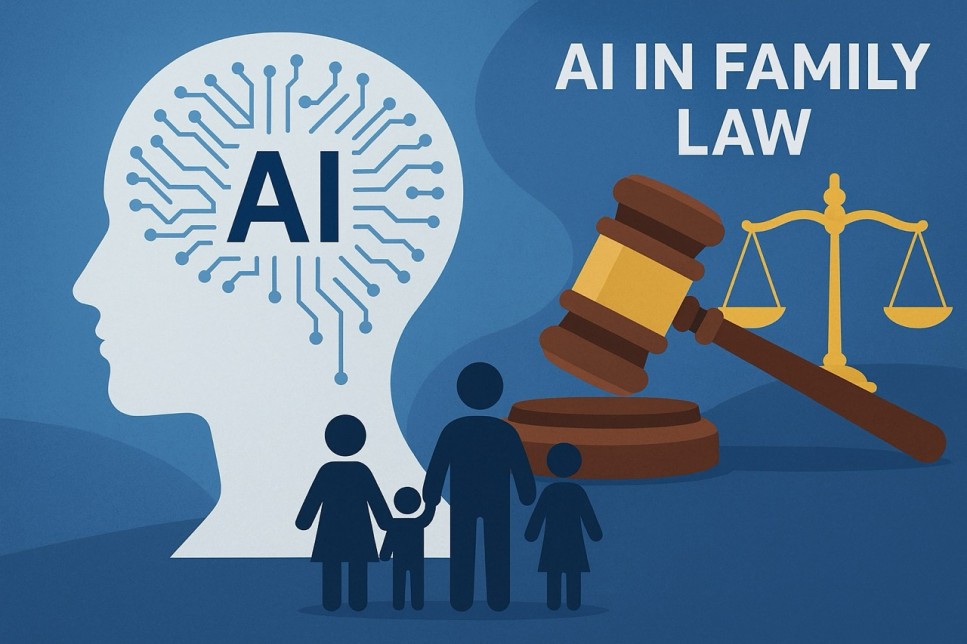The legal profession has traditionally been slow to embrace technological innovation, but a quiet revolution is taking place in family law practices across the country. As emotional complexities of divorce, child custody battles, and domestic disputes continue to challenge both attorneys and their clients, Family Law AI is emerging as a powerful ally in delivering more efficient, accurate, and compassionate legal services.
The Changing Landscape of Family Law Practice
Family law has always been one of the most emotionally charged areas of legal practice. Lawyers routinely navigate sensitive issues involving marriage dissolution, child support calculations, asset division, and custody arrangements while managing clients who are often experiencing some of the most stressful periods of their lives. The traditional approach, while thorough, often involves extensive manual research, document preparation, and case analysis that can be both time-consuming and costly for clients.
Today’s family law attorneys are discovering that Family Law AI technologies can significantly enhance their ability to serve clients effectively while reducing the administrative burden that has long plagued the profession. This technological shift isn’t about replacing the human touch that’s essential in family law but rather augmenting attorney capabilities to provide better outcomes for families in transition.
How Family Law AI is Transforming Daily Practice
Document Automation and Template Generation
One of the most immediate applications of Family Law AI is in document preparation and automation. Family law cases typically involve substantial paperwork, from divorce petitions and custody agreements to financial disclosure forms and settlement documents. AI-powered systems can now generate accurate, jurisdiction-specific documents by analyzing case details and automatically populating relevant legal templates.
This automation reduces the time attorneys spend on routine document preparation, allowing them to focus more attention on strategy development and client counseling. For clients, this translates to faster case processing and reduced legal fees, making quality legal representation more accessible to families with limited financial resources.
Predictive Case Analysis and Outcome Modeling
Perhaps one of the most valuable applications of Family Law AI lies in its ability to analyze historical case data and predict likely outcomes based on specific circumstances. By processing thousands of similar cases, AI systems can provide attorneys with data-driven insights about probable court decisions, settlement ranges, and custody arrangements.
This predictive capability helps lawyers set realistic expectations with clients from the outset, reducing the emotional rollercoaster that often accompanies family law proceedings. When clients understand the likely range of outcomes based on similar cases, they can make more informed decisions about whether to pursue litigation or seek alternative dispute resolution methods.
Enhanced Legal Research and Case Preparation
Family Law AI is revolutionizing legal research by quickly identifying relevant precedents, statutes, and case law that might impact a particular situation. Advanced AI systems can analyze the specific facts of a case and surface relevant legal authorities in minutes rather than hours, ensuring that attorneys have comprehensive information to build stronger arguments for their clients.
This enhanced research capability is particularly valuable in complex cases involving interstate custody issues, high-asset divorces, or unique family circumstances that require careful legal analysis. The technology helps ensure that no relevant legal precedent is overlooked, potentially strengthening case outcomes.
Improving Client Communication and Support
24/7 Client Support Through AI Chatbots
Family law emergencies don’t follow business hours, and clients often have urgent questions about custody schedules, support payments, or court procedures outside of traditional office hours. Family Law AI-powered chatbots can provide immediate responses to common questions, offering clients support when they need it most.
These AI systems can handle routine inquiries about case status, upcoming deadlines, required documents, and basic legal procedures, freeing up attorney time for more complex client needs while ensuring that families receive consistent support throughout their legal journey.
Personalized Legal Guidance and Education
AI technology is enabling family law attorneys to provide more personalized legal education to their clients. By analyzing individual case circumstances, Family Law AI systems can generate customized informational materials that help clients understand their specific situation, available options, and potential outcomes.
This personalized approach helps clients feel more informed and empowered throughout the legal process, leading to better decision-making and more satisfactory outcomes for all parties involved.
Cost-Effectiveness and Accessibility
One of the most significant benefits of Family Law AI adoption is its potential to make quality legal representation more affordable and accessible. By automating routine tasks and streamlining case preparation, attorneys can offer competitive pricing while maintaining high service standards.
This cost reduction is particularly important in family law, where clients are often dealing with the financial strain of separation or divorce. When legal services become more affordable through AI efficiency gains, more families can access the professional legal guidance they need during difficult transitions.
Addressing Ethical Considerations and Maintaining Human Connection
As Family Law AI becomes more prevalent, ethical considerations remain paramount. Family law attorneys are learning to balance technological efficiency with the essential human elements of empathy, judgment, and emotional support that clients require during family crises.
The most successful implementations of Family Law AI maintain clear boundaries about when human intervention is necessary, ensuring that sensitive discussions, strategic decisions, and emotional support remain firmly in the realm of human attorneys. AI serves as a powerful tool to enhance attorney capabilities rather than replace the critical human elements of family law practice.
The Future of Family Law AI
Looking ahead, Family Law AI technology continues to evolve, with emerging capabilities in areas such as natural language processing for contract analysis, predictive modeling for mediation success rates, and automated monitoring of compliance with court orders. These advances promise to further enhance the efficiency and effectiveness of family law practice.
As more attorneys embrace these technologies, clients benefit from faster case resolution, more accurate legal analysis, and improved access to quality legal services. The integration of Family Law AI represents not just a technological advancement but a fundamental shift toward more client-centered, efficient legal practice.
The transformation is clear: family lawyers who embrace AI technology are better positioned to serve their clients’ needs while building more sustainable, efficient practices. As this technological revolution continues, the combination of human expertise and artificial intelligence promises to deliver better outcomes for families navigating some of life’s most challenging legal issues.



